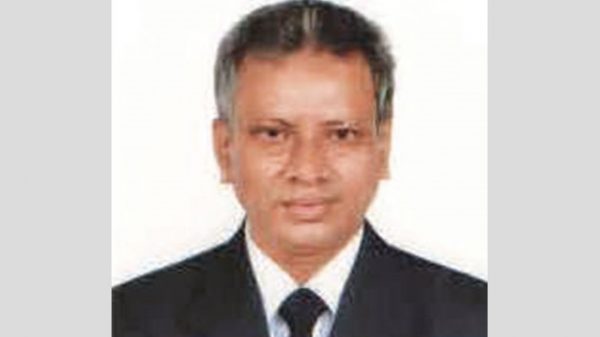A Glorious Moment for Bangladesh

- Update Time : Sunday, July 18, 2021
- 141 Time View

Golden Jubilee is the most remarkable event in the national context of the Father of the Nation Sheikh Mujibur Rahman’s Independent Bangladesh. Despite the terrible experiences of the pandemic-ridden year of 2020, the present 2021 seems truly going to open new vistas in the realm of our new hopes and aspirations. The year is being indelibly marked in our national history with the golden jubilee celebration of our independence and the birth centenary year of the Father of the Nation. Besides, the nation has begun the new year in a jubilant mood with the good news of gaining international acclamation as a developing country under the able guidance of our great leader, the honourable Prime Minister Jononetree Sheikh Hasina. Bangladesh had originally planned grand celebrations for the 50th years of Independence and Bangabandhu’s birth centenary but the coronavirus pandemic forced the country to revise the plan on health grounds.
The celebrations of the 50th anniversary of Bangladesh’s independence began on March 26 in Dhaka and will continue till December 16 across the country to spread the spirit of the Liberation War among youths and children. Side by side, the celebrations of ‘Mujib Year’ or the birth centenary year of Sheikh Mujibur Rahman remind people of the contribution of the Father of the Nation Bangabandhu Sheikh Mujibur Rahman and chain of events before and after independence.
Let us call it a golden coincidence of ‘Mujib Year’ and ‘Golden Jubilee’ in the same year. Bangladesh had announced the ‘Mujib Year’ (the Year of Mujib) between March 17, 2020, to March 26, 2021, in the honour of the country’s founding father and first President Bangabandhu Sheikh Mujibur Rahman but for the pandemic; the Government has logically extended Mujib Year till 16 December 2021.
According to the government announcement, the main objective of the celebrations is to communicate the spirit and history of the liberation war to the students as well as the countrymen and the foreigners. In this regard, all governmental, non-governmental institutions, autonomous bodies, and all other organs of the government have organized various programmes throughout the year.
Fifty freedom fighters carrying 50 national flags are visiting all 64 districts and district administrations would organise special programs. Video clips will be made on the 90,000 living freedom fighters and they are being invited to share their experiences during the war in interactive programmers with school children.
As the nation is celebrating its 50 years of independence, we should ask ourselves the inevitable question of whether we had progressed enough from both the ideological and economic viewpoints within the period of half a century about whether the dream of Bangabandhu’s proverbial ‘Sonar Bangla’– the Golden Bengal– is truly achieved. Bangabandhu’s worthy daughter Jononetree Sheikh Hasina has been working tirelessly for a long time to ascertain Bangabandhu’s ‘Golden Bengal’ where we are the proud citizens. To answer the question, we can say at least that there might have been very minor deviations, but we are proceeding towards the right direction under the charismatic leadership of Bangabandhu’s daughter, our honourable Prime Minister Jononetree Sheikh Hasina, who is determined to fulfill her martyred father’s dream. Under the leadership of Prime Minister Sheikh Hasina, the current government is working with full enthusiasm and momentum to fulfill the pledges made by Bangabandhu during the Liberation War.
Remarkable developments are visible in the health sector. Community clinics have been set up to ensure quality healthcare in remote areas. Maternal and infant mortality rate has dropped to a large extent. Infant mortality has dropped from 149 in 1990 to only 53 at present.
Despite the huge success in family planning, population growth remains a major headache for Bangladesh. To accommodate its growing population and resulting need for urbanization and industrialisation, Bangladesh is losing an estimated 8,000 hectares of farm land (equivalent to about 11,000 soccer fields) every year. If left unstopped, there will be no cultivable land left in Bangladesh in fifty years, posing a serious threat to the country’s food security.
Bangladesh has managed to achieve comprehensive food security. For the last few years, rice production has increased to 5 million metric tonnes. The country has recorded a major breakthrough in earning foreign remittance. Currently 8.6 million Bangladeshis are working in 157 countries. According to the World Bank, Bangladesh is the eighth largest remittance earner in the world. Bangladesh’s participation in the UN peacekeeping mission is also remarkable. Bangladesh ranks top among the 120 plus countries participating in the UN peace mission.
For the first time, the government is going to set up a food processing industrial city to ensure fair prices for farmers. This industrial city is to be set up on 50 acres of land in the northern city of Thakurgaon. The prime minister said, the government has taken initiative to create skilled manpower with the idea of the fourth industrial revolution. It is clear that the number of extremely poor people in Bangladesh has decreased a lot.
Bangladesh is not lagging behind in other sectors either. UNCTAD’s survey shows that Bangladesh is the top country in ship recycling and the global percentage is 54.7. Bangladesh is moving ahead in the export sector and Bangladeshi medicines are being exported to 148 countries of the world. Bangladesh is one of the fastest growing countries in the energy sector. 1 lakh 37 thousand people have been employed in the renewable energy sector of Bangladesh. Bangladesh is the fifth largest employer in the solar power sector in the world.
As a citizen of Bangladesh, my evaluation in the 50th years of the country’s independence is that Father of the Nation Bangabandhu Sheikh Mujibur Rahman, under whose leadership Bangladesh was emerged as an independent nation, was a blessing for the Bengali nation and his daughter Sheikh Hasina is an immense asset for the people of the country as under her leadership Bangladesh has been able to stand in the world with the nation’s head held high.
The writer is Minister (Press), Bangladesh High Commission, New Delhi



















